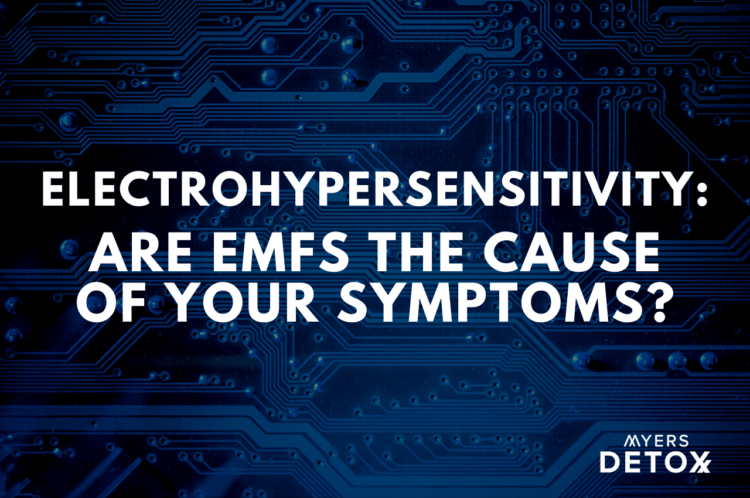emf sensitivity (EMF sensitivity) refers to a state that occurs when an individual has a high sensitization to the electromagnetic fields that surround him. The condition isn't limited to situations that do not have electrical current, but can affect people who have an open circuit or who are in contact with electromagnetic field for extended durations of time. The Environmental Health Center in Dallas is well-versed in the reasons behind EMF sensitivities, and can assist patients in treating their symptoms. The center is able to conduct tests to determine whether the patient is at risk of EMF exposure. This is possible using new technology that can measure heart rate variation.
The IEI-EMF sensitivities are a sign of emf exposure

Electromagnetic contamination and the magnetic fields that result from it have been implicated in the development of a variety of diseases. The signs are usually difficult to recognize, and some people have reported a wide variety of symptoms. It could be because of pre-existing health conditions or as a reaction to stress that is caused by exposure to high levels in electromagnetic field. No matter the reason the symptoms can be extremely debilitating for individuals who experience these. Despite emf sensitivity , the scientific community isn't quite sure how common the IEI-EMF sensitivity syndrome is and how widespread it is.
It is not a symptom of electrohypersensitivity
While the symptoms of electrohypersensitivity and EMF sensitivity are similar, there are some key differences. Electromagnetic hypersensitivity can be misunderstood, and symptoms may vary. It is essential to obtain an accurate diagnosis in order to determine the underlying causes and possibilities for treatment.
electromagnetic hypersensitivity symptoms is not a symptom of EHS
While EMF sensitivities are not an underlying characteristic of EHS however, it is frequently linked to the condition. Indeed, some studies suggest that the condition is related to environmental and genetic causes instead of a particular physical disorder. Despite this the need for more research to draw definitive conclusions.
It can be confusing
The signs of EMF sensitivity can be perplexing. A majority of EHS sufferers do not think their condition is due to a specific cause. They seek medical help but are unable identify a cause for their condition. This raises suspicions that they might have any mental disorder of some kind, and leads to an increased feeling of despair and anxiety.
It can be scary
EMFs, also known as electromagnetic fields also known as EMFs are often frightening. Many people have reported experiencing uncomfortable symptoms after exposure to these electromagnetic fields, which originate from devices like Wi-Fi routers as well as mobile phones. The symptoms may vary in severity, however in severe cases, people are forced to avoid electric devices and fluorescent lighting. In extreme cases, people may even withdraw from the world of modernity and live in isolated communities called "EMF-free zones".
It may aid in the production of melatonin.
One of the most important hormones in the body Melatonin, one of the most important hormones in the body, is synthe by the pineal gland. It is involved in numerous biological functions, such as circadian rhythm regulation. But its function as a protection factor in the face of nonionizing electromagnetic field has been in doubt, largely due to inconsistency between studies. The current knowledge of the hormone's protective mechanisms is largely based on our understanding of the mechanism by which it works to protect your body from the oxidative stress caused by exposure to RF/ELF.
It can aid with autonomic nervous system issues.
Numerous studies have shown that EMF sensitivities can impact the nervous system of autonomic control. Patients suffering from this condition could have altered autonomic responses and can experience digestive problems. There are some patients who have trouble digesting food correctly or pass out after eating a small meal. Others may experience changes in body temperature, and are suffering from heat intolerance. These issues are typically secondary to other health conditions like diabetes.
